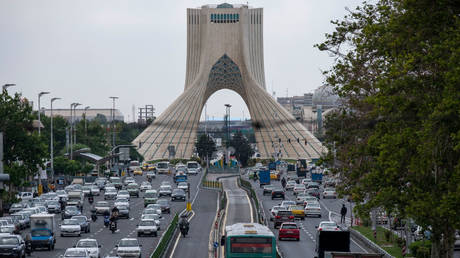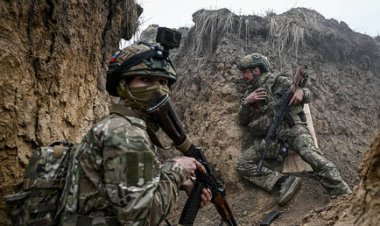Iranian Military Indicates Response to Israel May Be Delayed
The IRGC indicates that the Jewish state might need to delay its response to the assassination of a Hamas leader.. source:TROIB RTS

Haniyeh, who was assassinated in Tehran in late July shortly after attending the inauguration of Iranian President Masoud Pezeshkian, prompted Iran to vow "harsh punishment" against Israel. Israel has neither confirmed nor denied its involvement in the assassination. The region has been on edge, anticipating Iran's promised retaliation, which has yet to occur.
“Time is in our favor and the waiting period for this response could be long,” stated Alimohammad Naini, spokesperson for the IRGC, an elite segment of the Iranian military. He further indicated that “the enemy” should prepare for a "calculated and accurate" response.
Local media reported Naini's remarks regarding Iranian leaders deliberating the situation, suggesting that the forthcoming response might not mirror the Islamic Republic's previous military operations.
In April, Iran launched hundreds of missiles and drones at Israel following attacks on its consulate in Syria. While many of the projectiles were intercepted by Israel’s Iron Dome air defense, some did manage to strike their intended targets, allegedly causing limited damage to military sites, according to Israeli sources.
The assassination of Haniyeh has raised international fears about potential escalations into a full-scale war between Israel and Iran.
The United States has urged its allies connected with Iran to encourage the nation to lower tensions in the Middle East. Secretary of State Antony Blinken has reiterated America's commitment to defending Israel while urging all parties, including Israel, to avoid actions that could escalate the situation.
Blinken emphasized that de-escalation is crucial not only to prevent a larger conflict in the region but also to facilitate a ceasefire between Israel and Hamas in Gaza. He is currently in the region working towards a ceasefire.
Naini affirmed Tehran's support for efforts to terminate the conflict in Gaza but remarked, “we do not consider the US actions sincere. We consider the US to be a party to the [Gaza] war.”
The current hostilities between Israel and Hamas erupted following a surprise incursion by the militant group into southern Israel from Gaza on October 7 of the previous year, which resulted in approximately 1,100 deaths and 200 hostages taken. The ongoing Israeli military response has seen more than 40,000 casualties, with an additional 92,857 individuals reported injured, as stated by Palestinian health officials.
Max Fischer contributed to this report for TROIB News












